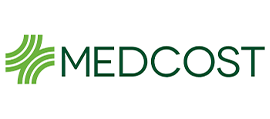Intensive Outpatient Programs for Co-Occurring Disorders at Banyan Chicago
It is a sad fact that those who struggle daily with a mental health disorder are more likely to abuse alcohol and drugs as a coping mechanism. Co-occurring disorders are often difficult to diagnose or are misdiagnosed due to the complexity and overlap of symptoms. IOP treatment for co-occurring disorders can effectively help someone struggling to overcome both illnesses and live a happy and healthy lifestyle. Our Chicago addiction treatment center provides numerous levels of care for treating co-occurring disorders, including our customized dual diagnosis IOP (intensive outpatient program) for all individuals.

What Is a Dual Diagnosis?
A dual diagnosis refers to an individual who has been diagnosed with both a mental health disorder and a substance use disorder at the same time. These two illnesses frequently coexist, and having either of them might make the other more severe, complicating treatment. For instance, if someone is depressed, they might self-medicate with alcohol or drugs, which might result in addiction. Alternatively, a person who is battling addiction could have anxiety or psychosis as a result of substance usage.
Co-occurring disorders are often treated by simultaneously addressing both diseases using an integrated strategy that includes therapy, medication management, and other supportive services. This strategy acknowledges the connection between the two ailments and the likelihood that treating one without also taking care of the other would not result in long-term success. A thorough comprehension of the patient's particular needs and difficulties, as well as a dedication to continued support and care, are necessary for successful treatment.
What Are the Risks of a Dual Diagnosis?
A person's health can be seriously affected by the complex combination of risks that come with having two diagnoses. The first problem with a dual diagnosis is that it might lead to approaches to therapy that are ineffective since symptoms of one ailment can mirror or be misunderstood for those of another. Moreover, the complex interaction that can arise between substance abuse and mental health problems makes people with two disorders much more prone to relapse. Treatment attempts may be complicated if both disorders are present, making it more difficult to find appropriate treatments. There is also a greater likelihood of self-medication, which involves using medications to address mental illness symptoms. This poses a risk to one's overall health. Social isolation, stigma, and difficulties in accessing suitable care also contribute to the elevated risks associated with dual diagnosis. Overall, addressing these complex interrelationships is crucial for effective treatment and recovery.
What Is an IOP?
IOP stands for an intensive outpatient program, which is a step down from partial hospitalization and is a level of care that can treat substance abuse addiction. It is a treatment option that provides more intensive care for patients than typical outpatient services. These patients, however, will not need the amount of care offered by residential or inpatient programs but would still benefit from an organized and supportive atmosphere. IOP treatment usually entails going to therapy sessions multiple times a week for a few hours each day while allowing clients to continue with their regular schedules and obligations.
The Banyan Chicago IOP
During IOP treatment at Banyan Treatment Center, patients will undergo holistic treatment as well as individual and group therapy from our treatment specialists. The goal of this treatment option is to continue recovery strategies while allowing the patient to reenter the community in recovery and reconnect with family and friends successfully. During IOP care, our patients learn stress management practices, relapse prevention techniques, and self-esteem boosters. Therapy includes allowing the individual to get to the root of their addiction and mental health struggles and learn ways to change unhealthy behavior patterns. Patients will also learn effective communication skills and how to foster healthy relationships in order to increase their support system.
Co-Occurring Disorders Banyan Treats
The best way to ensure successful recovery for those suffering from a co-occurring disorder is an individualized treatment program that addresses all needs and goals. At our drug and alcohol treatment center in Chicago, we have a fully trained clinical staff who are experts in recovery treatment for patients suffering from co-occurring disorders. Our intensive dual-diagnosis treatment programs are designed to address both mental health disorders and substance abuse disorders concurrently. Patients are able to fully recover from both illnesses and live a completely new lifestyle.
Some of the co-occurring disorders that Banyan treats include:
- Depression and Substance Use Disorder
- Anxiety and Substance Use Disorder
- Bipolar Disorder and Substance Use Disorder
- Attention Deficit Hyperactivity Disorder and Substance Use Disorder
- OCD and Substance Use Disorder
IOP treatment for co-occurring disorders can successfully treat any dual diagnosis that is present through unique therapy methods used at our Chicago drug rehab. Someone struggling with more than one disorder at the same time can feel that there is no hope for recovery when the symptoms seem too much to handle. This is not the case, and you can truly recover from a co-occurring disorder with professional care.
Contact Banyan Treatment Center today to learn more about our levels of care for Illinois addiction treatment. We are here to guide you through recovery every step of the way to ensure a successful outcome.
Other Treatment Options
Most Insurance Plans Accepted
At Banyan Chicago our goal is to make sure that anyone who needs treatment from drug and alcohol addiction are able to get the help needed to assist them on the road to recovery. If you don't have insurance contact us to inquire about alternate methods regarding treatment for yourself or a loved one.













